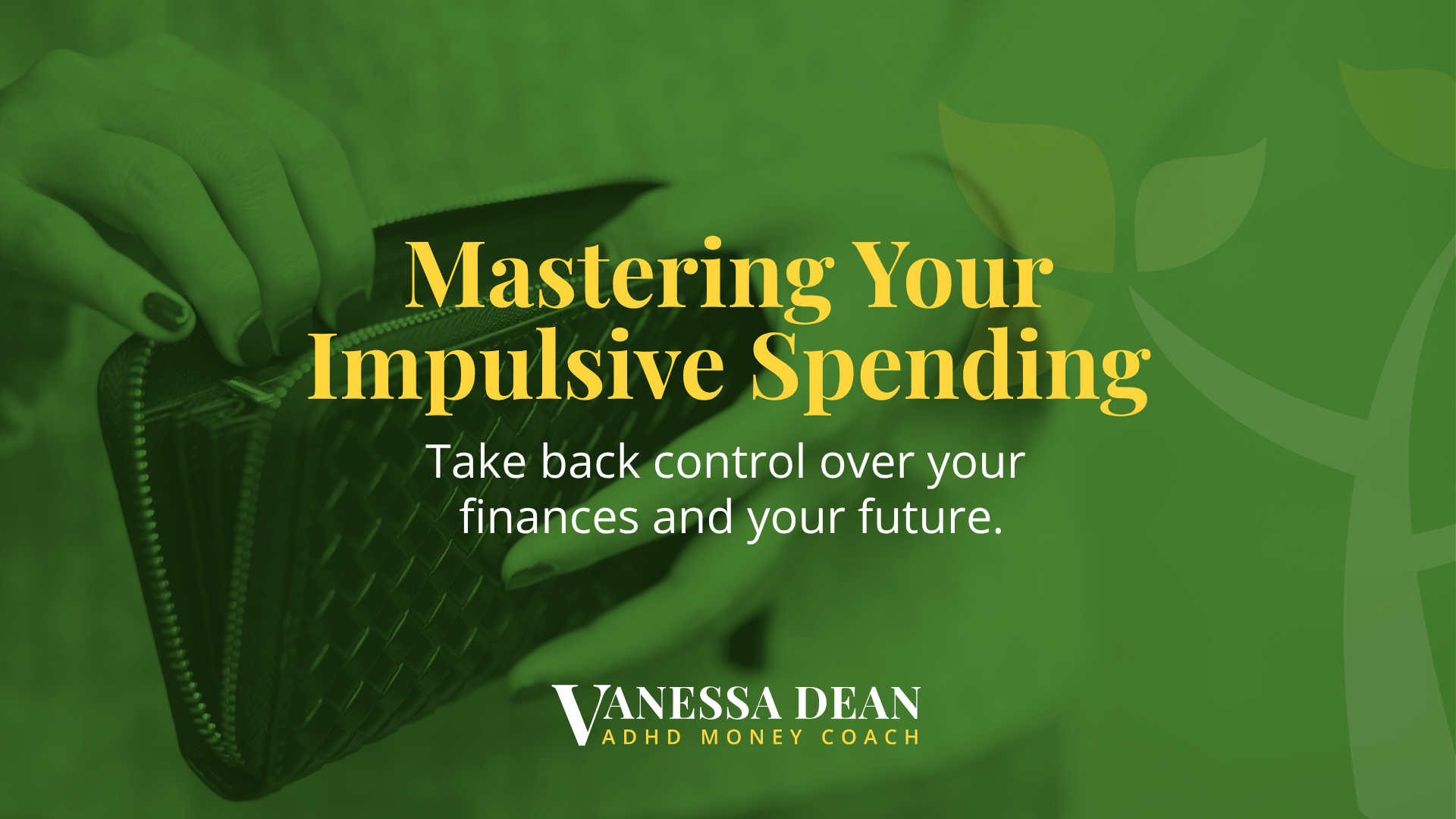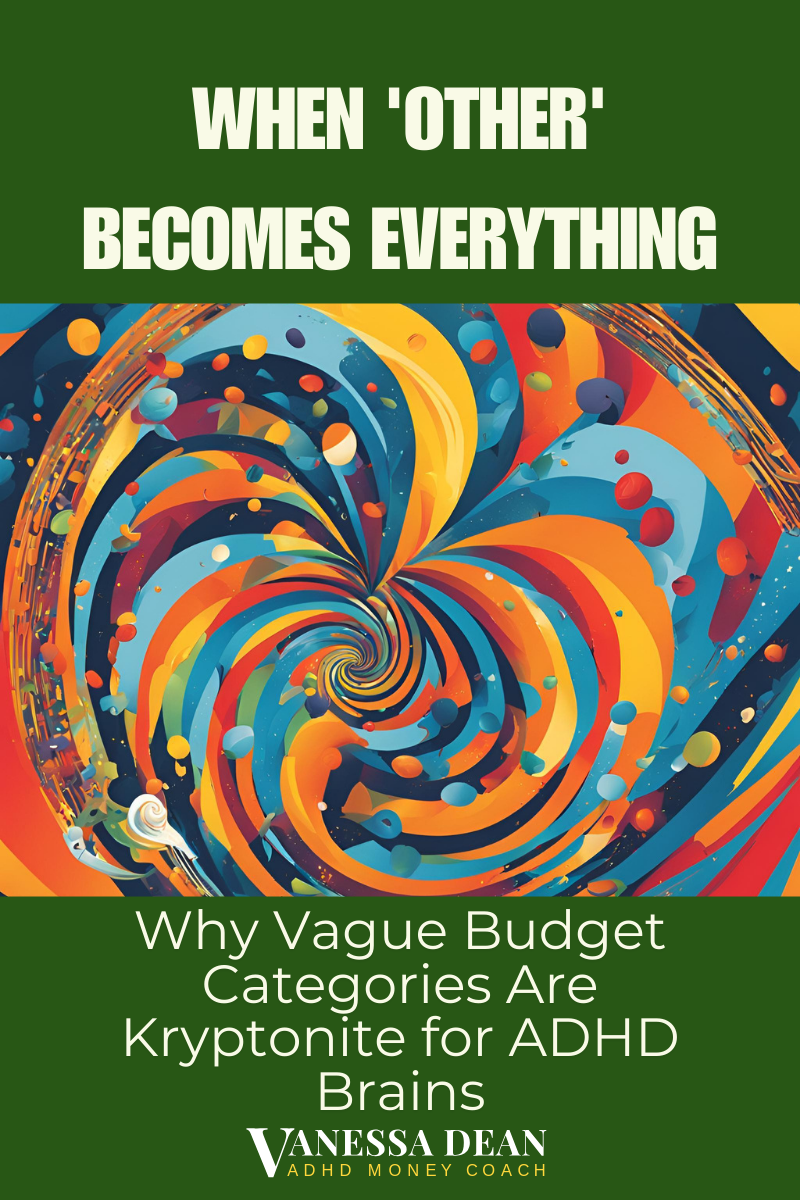
ADHD and The Case For Rest
Hustle culture tells us that if we aren’t pushing, we’re falling behind. For women with ADHD, that message often lands on top of existing shame around productivity. But rest isn’t laziness. It’s regulation.

When the Holiday Spending Hangover Hits: What to do when the bill arrives.
The magic fades fast in January. One minute you’re soaking in the joy of Christmas, and the next your phone buzzes with a credit card alert that stops you cold. If the holiday hangover has hit your finances hard, you’re not alone—and it doesn’t mean you failed.

Name it. Rewrite It: The ADHD guide to financial identity.
Your financial identity is the story you believe about yourself and money.
For many people with ADHD, that story was shaped by years of correction, criticism, and stress—long before they ever managed a budget.
Those stories become labels. And once we attach to them, they quietly run our financial decisions.

From Elf Mode to Money Mode: Unmasking your financial identity.
For a long time, I believed I would always be “Vanessa Dean, frivolous spender.”
ADHD made every money mistake feel personal, every slip feel final, and every win easy to overlook.
But small moments—like sticking to a grocery list—slowly changed how I saw myself.
Those wins didn’t just change my habits.
They changed my identity.

It’s the Wiring.
Just like a flickering light that keeps returning no matter how many times you change the bulb, emotional spending isn’t about the surface problem, it’s about the wiring underneath. For ADHD brains, that wiring includes lower dopamine levels that make shopping feel like relief from stress, boredom, or loneliness. This post unpacks why emotional spending happens, how it becomes a coping mechanism, and what it really takes to break the cycle without shame or blame.

From Spontaneous Chaos to Secure Control: Cher’s ADHD Money Shift
When Cher first started coaching, money felt chaotic—bills slipped through the cracks, spending was impulsive, and savings never stuck. Through ADHD-friendly budgeting, weekly check-ins, and mindset shifts, she transformed from “Carefree and Spontaneous” to “Planning and Security.” Learn how small systems can bring consistency, confidence, and control to your finances.

ADHD and TimeBliness: Why it hurts your finances (and how to work with it.)
September brings new routines and shifting schedules, a challenge for ADHD brains prone to time blindness. This post explores how losing track of time impacts money management and offers simple, ADHD-friendly strategies like automation, visual reminders, and weekly check-ins to stay on top of bills and spending.

Today is the Day!

I Did It Again… Another Planner, Another Identity
If you’ve ever bought a planner to become “organized,” or workout gear to feel like someone who hits the gym at 5 AM, you’ve experienced identity shopping. It's not about the stuff—it's about the story we’re trying to buy into. And for ADHD brains, that story often stems from years of trying to mask our challenges and perform a version of “enough.”
As an ADHD Money Coach, I’ve worked with women who keep spending not because they’re irresponsible, but because they’re chasing a version of themselves that feels easier to buy than become. The good news? You don’t need another system, storage bin, or sticker set. You need a shift in identity—one that starts with who you already are, not who marketing says you should be.
In this post, I break down how identity-based spending patterns take root, what they’re really about, and how to rewire your financial habits by aligning them with who you choose to be.
Let’s unpack the cart and reclaim your identity.

Low Self-Confidence Affects Your Wallet
Expert Insight: Why Confidence Crashes Your Budget (Especially if You Have ADHD)
As a financial coach for women with ADHD, I’ve seen a pattern play out again and again: it’s not just about the money. It’s about the moment right before you spend, the emotion, the self-talk, the self-worth. The research backs it up. Confidence dips lead to impulsive swipes, especially for neurodivergent brains wired for immediate relief.
This isn’t about laziness or lack of discipline. It’s about how your brain processes stress, shame, and the lie that stuff equals success.
In this post, I break down the psychology behind confidence-triggered spending, the research that proves it, and exactly how to stop the cycle before it drains your bank account.
Let’s interrupt the spiral, with science, strategy, and a whole lot of self-compassion.

Dopamine Spending Hacks: How I Tame My ADHD Brain
Let’s face it: our ADHD brains are wired for novelty and quick hits of dopamine. That new planner? Irresistible. A flash sale on those cute sneakers? Pure temptation. I once spent $40 on a gadget I used once—because the rush felt good in the moment. Then came buyer’s remorse and a glaring hole in my budget.
Pause, Reflect, Realign: You Mid-Year Financial Reset.

WHY MY ADHD BRAIN LOVES TO CLICK BUY NOW
I’ll never forget the day my card got declined at Walmart with my kids in tow. My cheeks burned hotter than their frozen corn dogs. But that moment forced me to face my spending pattern head-on. Now, whenever I feel out of control, I picture that embarrassment—and it snaps me out of it.

Meal Planning & Money Planning
42.6% of Americans don’t plan meals ahead. 27% are living paycheck to paycheck. Only 44% could cover a $1,000 emergency right now. Half aren’t saving for retirement. ADHD? It’s a financial curveball. We tend to have a net worth 75% lower than our peers. Yeah, ouch.
But before the shame spiral kicks in—breathe. This isn’t about blaming ourselves. It’s about understanding why planning feels so impossible sometimes, and what we can actually do about it.

Financial Navigation for ADHD Brains That Actually Work
Let's be honest: Traditional financial advice often feels like it was written for neurotypical brains. "Just stick to a budget!" they say, as if willpower alone could overcome ADHD challenges.

From Spontaneous to Strategic: How One Client Transformed Her Financial Habits in 3 Months

Why Your Spending Might Be About Belonging

When ‘Other’ Becomes Everything: Why Vague Budget Categories Are Kryptonite for ADHD Brains

Why Vague Budget Categories are Kryptonite for ADHD Brains
Tracking your finances with ADHD isn't about perfection – it's about progress. A messy budget that you actually use is better than a perfect system that lives only in your head.
~Vanessa Dean

Creating Goals When you Have ADHD
Ultimately, setting goals when you have ADHD is not merely about becoming more productive — it’s about living our best life. By understanding our unique brains, embracing our strengths, and crafting goals that work for us, we can view every step forward, no matter how small, as a monumental victory.

